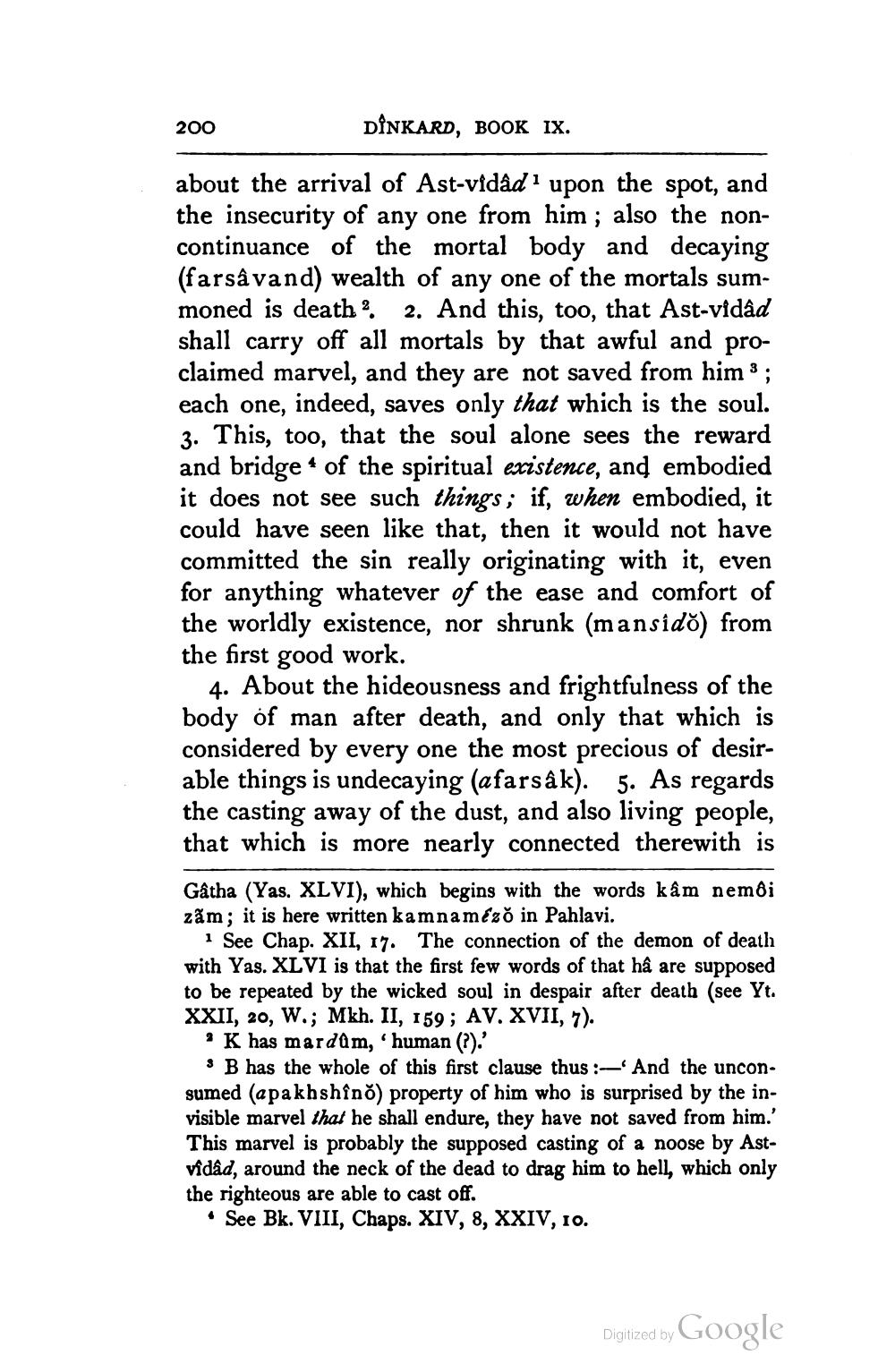________________
DINKARD, BOOK IX.
;
about the arrival of Ast-vidâd1 upon the spot, and the insecurity of any one from him; also the noncontinuance of the mortal body and decaying (farsâ vand) wealth of any one of the mortals summoned is death 2. 2. And this, too, that Ast-vidâd shall carry off all mortals by that awful and proclaimed marvel, and they are not saved from him 3 each one, indeed, saves only that which is the soul. 3. This, too, that the soul alone sees the reward and bridge of the spiritual existence, and embodied it does not see such things; if, when embodied, it could have seen like that, then it would not have committed the sin really originating with it, even for anything whatever of the ease and comfort of the worldly existence, nor shrunk (mansido) from the first good work.
200
4. About the hideousness and frightfulness of the body of man after death, and only that which is considered by every one the most precious of desirable things is undecaying (afarsâk). 5. As regards the casting away of the dust, and also living people, that which is more nearly connected therewith is
Gâtha (Yas. XLVI), which begins with the words kâm nemôi zăm; it is here written kamna mézŏ in Pahlavi.
1 See Chap. XII, 17. The connection of the demon of death with Yas. XLVI is that the first few words of that hâ are supposed to be repeated by the wicked soul in despair after death (see Yt. XXII, 20, W.; Mkh. II, 159; AV. XVII, 7).
2K has mardum, 'human (?).'
SB has the whole of this first clause thus:- And the unconsumed (apakhshîno) property of him who is surprised by the invisible marvel that he shall endure, they have not saved from him.' This marvel is probably the supposed casting of a noose by Astvidâd, around the neck of the dead to drag him to hell, which only the righteous are able to cast off.
• See Bk. VIII, Chaps. XIV, 8, XXIV, 10.
Digitized by
Google




